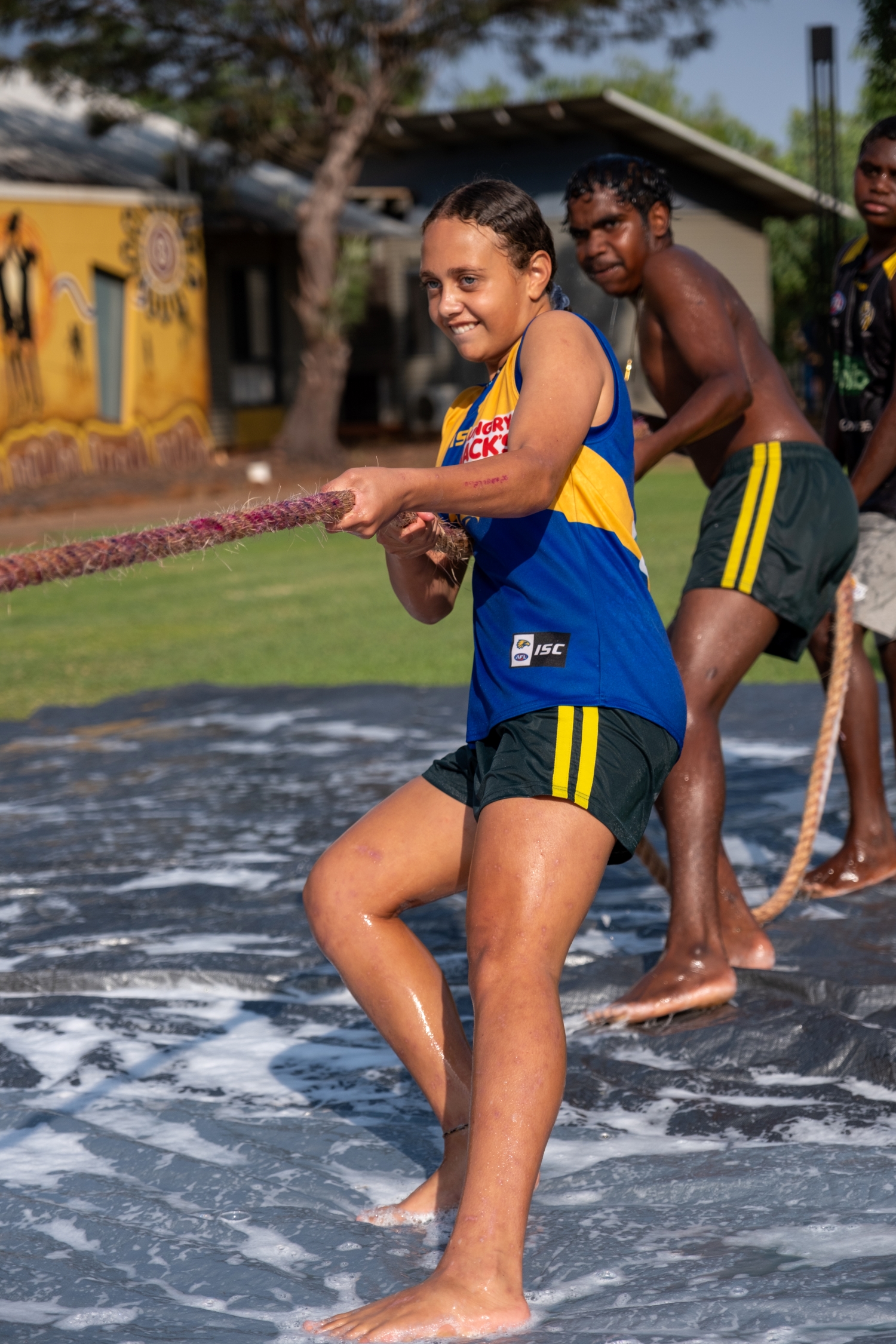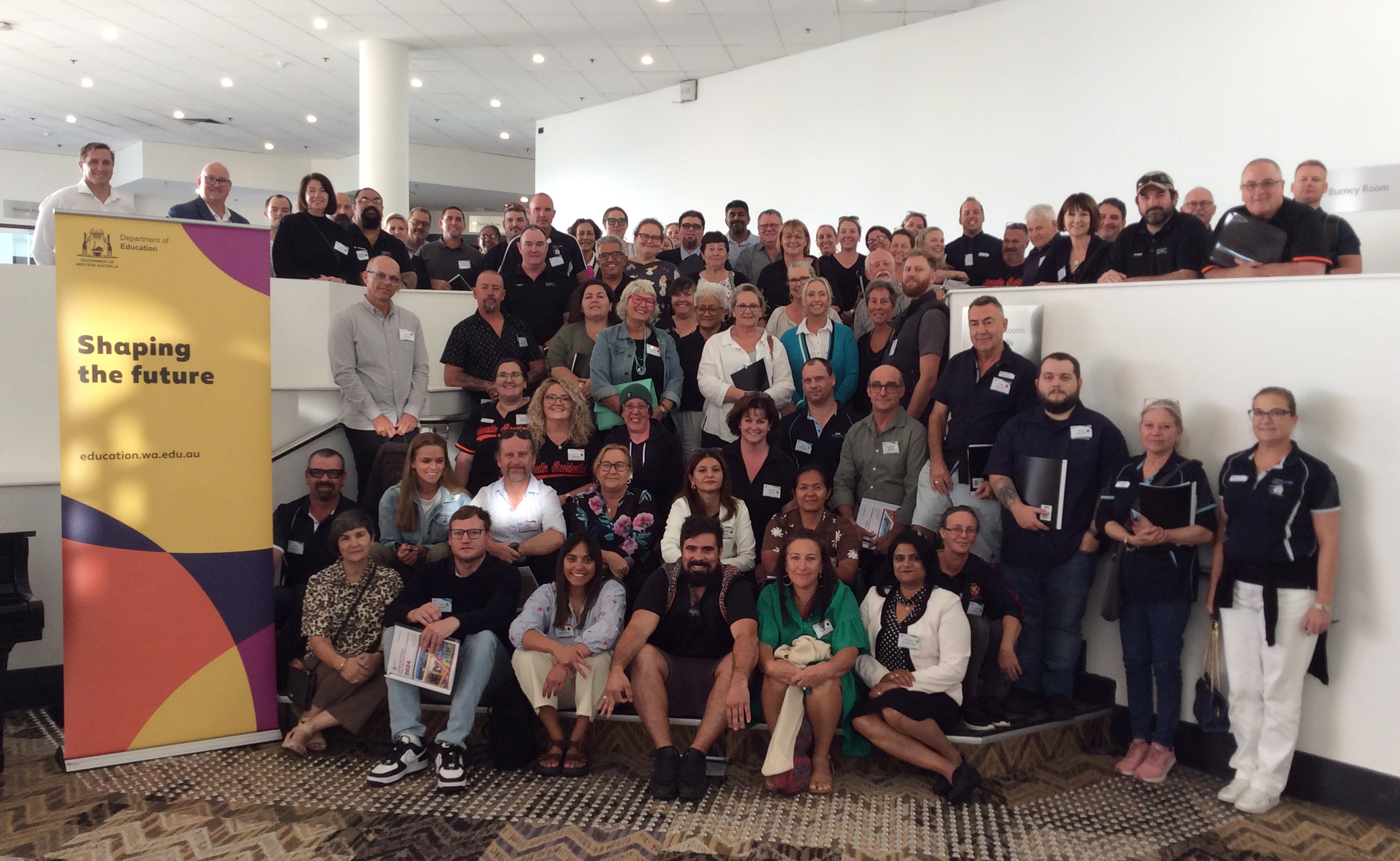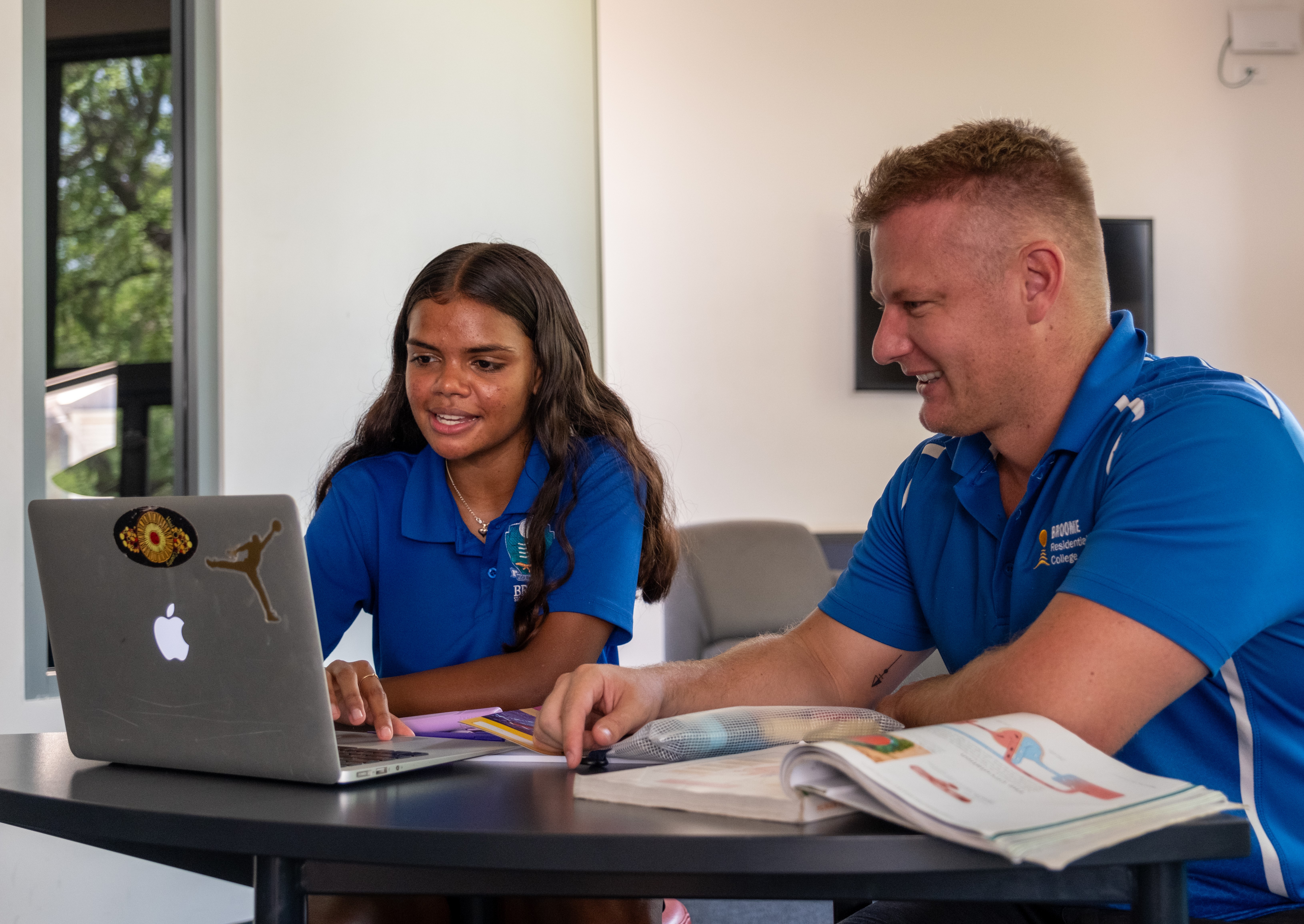Residential colleges
Residential colleges
Eight country-based residential colleges and one city-based residential college provide boarding services for country students.
Country boarding provides your child with the opportunity to remain in the country to attend secondary school. They continue enjoying a country lifestyle and stay connected to regional Western Australia. Your child may even choose to return home at weekends, as is the case for many of our boarders.
City boarding is available for students from the country who are enrolled in a Gifted and Talented Secondary Selective Entrance program at select metropolitan secondary schools. These gifted students have the opportunity to access the finest education while living in a safe, secure and supportive environment close to their schools.
As a boarder, your child is able to:
- live and study with other young people from the country
- complete high quality secondary education at one school
- attend a secondary school that offers a variety of subjects and a range of experienced teachers
- participate in local sport, recreation and part-time work
- access the facilities and amenities of a large country town or the city.
- Boarding locations
- Life as a boarder
- Supervision
- Fees and allowances
- Applying for a place
- Local input networking and communications (LINC) committees
- Useful links
- Student concerns and complaints
There are 8 residential colleges located in regional centres throughout WA: 
- Albany Residential College
- Broome Residential College
- Esperance Residential College
- Geraldton Residential College
- Merredin Residential College
- Moora Residential College
- Narrogin Residential College
- Northam Residential College
City Beach Residential College is located in the Perth metropolitan area. Students from country areas who are enrolled in a Gifted and Talented program at a secondary school, may be eligible to board at City Beach Residential College.
Year 7 students who reside outside of Albany and who are accepted into the Albany Senior High School Gifted and Talented program, can board at Albany Residential College.
As a boarder, your child lives in a supportive and welcoming ‘home away from home’ with other young people from the country.
 They enjoy:
They enjoy:
- safe, secure accommodation (with separate living quarters and bathrooms for girls and boys)
- easy access to school
- support with their studies
- high-quality recreation and study facilities
- access to sports and other interests
- a variety of recreational activities and excursions
- healthy, balanced meals
- a supportive and social environment in which to live.

Your child is supervised by professional and experienced staff members who are responsible for the well-being of every boarder. They are dedicated to creating a wonderful boarding experience for your child and they ensure a healthy balance between study and recreation.
 Led by residential college managers, supervisors provide emotional support while your child is living away from home. They ensure everyone is well-behaved, respectful and considerate of others. Boarding staff support boarders’ educational needs by providing regular study sessions and tutoring. They assist with travel to after-school sports and create fun activities for the weekends.
Led by residential college managers, supervisors provide emotional support while your child is living away from home. They ensure everyone is well-behaved, respectful and considerate of others. Boarding staff support boarders’ educational needs by providing regular study sessions and tutoring. They assist with travel to after-school sports and create fun activities for the weekends.
They also foster good communication between the residential college, boarders, school and families.
When accepting a place at a residential college, parents agree to pay the $15,157 boarding fee which covers the bed, meals, facilities, and pastoral care of each student. For overseas students, the boarding fee is $26,202.
In 2025, the boarding fee will be $15,536 and the fee for international students will be $26,857.
In addition to the boarding fee, amounts are required to cover individual services which may be provided for students. Individual services may include, but are not limited to, extras such as uniforms, tutoring, counselling, transport, medical services, medical supplies, camps and outings.
Parents may be eligible for allowances or subsidies which can reduce costs. To find out more about your eligibility for these allowances and subsidies, download the Residential college costs for 2024.
 Applying for a place is an easy process and residential college managers are more than happy to help.
Applying for a place is an easy process and residential college managers are more than happy to help.
For country boarding, please enrol in the school you’d like your child to attend and apply for any allowances or subsidies for which you may be eligible. Then fill out an application form and submit it to your preferred residential college. Visit your preferred residential college’s website for more information.
For city boarding, you may apply at City Beach Residential College once your child has been accepted into a Gifted and Talented program at a select metropolitan secondary school.
LINC committees provide a vital link between residential colleges and the community. Each of the 9 residential colleges has its own LINC committee, made up of community members. They provide advice and support to the college manager and staff.
The role of the committee
The purpose of a LINC committee is to enable parents and members of the community to:
- provide advice to the college manager regarding the operation and management of the college
- promote the college
- engage in activities that are in the best interests of students.
The LINC committee may:
- approve advertising and sponsorship arrangements
- be consulted on the student code of conduct
- take part in the selection of staff
- provide advice on disputes or complaints
- take part in planning, financial matters and college priorities.
The LINC committee cannot:
- intervene in management
- direct staff.
Becoming a committee member
A LINC committee consists of 4 to 10 members. Committee members are appointed by the Director General and selected based on their experience, skills, attributes or qualifications to effectively perform the functions required by the committee.
A committee member can be:
- a parent of a student/s at the residential college
- a member of the general community
- an employee of the residential college.
Express your interest in becoming a member of your local LINC committee.
Financial assistance
- Abstudy
- Assistance for Isolated Children Scheme (AIC)
- Boarding Away from Home Allowance (BAHA)
- Subsidised Student Travel
- Youth Allowance
Support organisations
- Aboriginal Hostels Ltd (AHL)
- Boarding Australia
- Indigenous Education and Boarding Australia
- Isolated Children’s Parents Association (ICPA)
Other useful links
- Schools online – list of all WA schools
- School term dates
It’s ok to have concerns and complaints about what might be happening at school or at the residential college. If you are not sure who to speak to, you can start with your teacher, school principal or the residential college manager. Find out more about how to make a complaint and our complaints process.
Make a complaint
You can make a complaint in person, by phone, online, or in writing.
Telephone: 1800 011 114 (Monday to Friday, 8 am to 5 pm)
Web: Make a complaint online
Email: residentialstudentscomplaints@education.wa.edu.au
If your complaint is urgent or is an emergency please call Police, Crisis Care or Kids Helpline.
Kids Helpline
24 hours a day, 7 days a week
Telephone: 1800 55 1800
Web: kidshelpline.com.au
Crisis Care
24 hours a day, 7 days a week
Telephone: 1800 199 008
Web: wa.gov.au
Police
24 hours a day, 7 days a week
Telephone: 131 444 (000 for emergencies)
Web: police.wa.gov.au
Remember, if it’s an emergency, immediately hang up and call 000.
Take a virtual tour
Take a virtual tour
Explore our 9 residential colleges by taking 360-degree virtual tours, and discover why residential colleges are great places to live and learn.